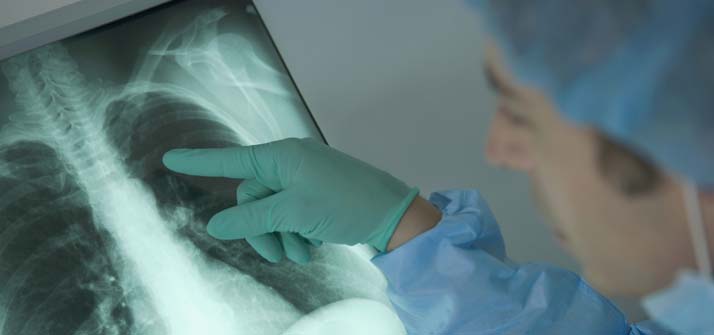
Research
Planned research programmes
CEAC has identified a number of key research programmes which are detailed below.
Autoantibodies (AABs)
We believe our team is the only one in the world currently able to deliver a blood based screening test for all types of solid cancers. There is an urgent need for new, more effective and more patient-acceptable screening tests for most types of cancer. This programme is very ambitious in its goal but justifiable given The University of Nottingham’s experience in delivering the world first autoantibody blood test for lung cancer.
Early detection of breast, colon and lung cancer has been shown in large studies to reduce the number of deaths from these diseases. However, current screening tests for those three cancers only reduce the number of deaths by around one fifth. In addition the tests required as part of the screening process are not well accepted even by individuals at high risk of these diseases.
Common cancers
Establishing a programme to assess the value of a wide range of Tumour-Associated Antigens (TAAs) and how each relates to a different type of tumour will be crucial in the development of tests for each type of cancer. This part of the programme would be focused on five of the most common and clinically significant solid tumour types (other than lung cancer):
- Breast
- Colon
- Liver
- Prostate
- Kidney
High throughput screening (HTP)
To find and produce the right set of proteins (antigens) in the lab to detect autoantibodies in a blood test is a race against time. CEAC has access to a high throughput (HTP) screening technology which allows multiple antigens to be assessed at the same time. This part of the project is a fundamental part of the overall programme for Cancer – Early Detection.
Protein production in different expression systems
The proteins which CEAC currently uses to identify the autoantibodies are produced in bacteria called E. coli. The proteins produced by the E. coli are bacterial rather than human and as such may not be the best source of these proteins.
One strand of CEAC’s technical development programme to improve the detection of AABs to Tumour-Associated Antigens (TAAs) will be to use different types of cells other than bacterial (eg yeast, human) to produce these TAAs in. This requires new equipment, consumables and expertise in this field plus technical staff to carry out this work.
Development of a multiplex and planar assay format
Improvement in the format of the initial early detection test is another strand of our technical development. We plan to do this by developing a second version in which the assay will be performed in a much smaller format/volume. This part of the programme would be achieved in collaboration with colleagues in Immunology.
Immune profiling
The use of immunoprofiling would provide:
- new and unique understanding of the early changes which lead to cancer developing
- allow earlier detection of cancer
- improve overall cancer care
Immune profiling of the various different types of cancer is a huge challenge. It requires assessment of multiple antigens (eg tens to hundreds produced and tested on the HTP system) on large numbers of individuals with a wide variety of cancer types (eg at least 200 individuals for each type of cancer - breast, lung, ovary, etc).
Furthermore changes in individuals profiles over time as they develop cancer requires access to unique sample sets. To fully understand immunoprofiles in patients with cancer, we will also have to understand immune-profiles in large populations of normal individuals over time periods of months and years.
Other programmes
There are a number of other research programmes which we will carry out as funding is secured.